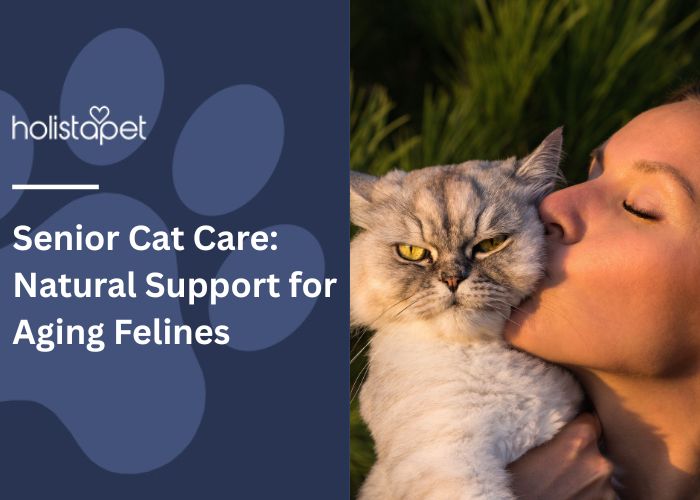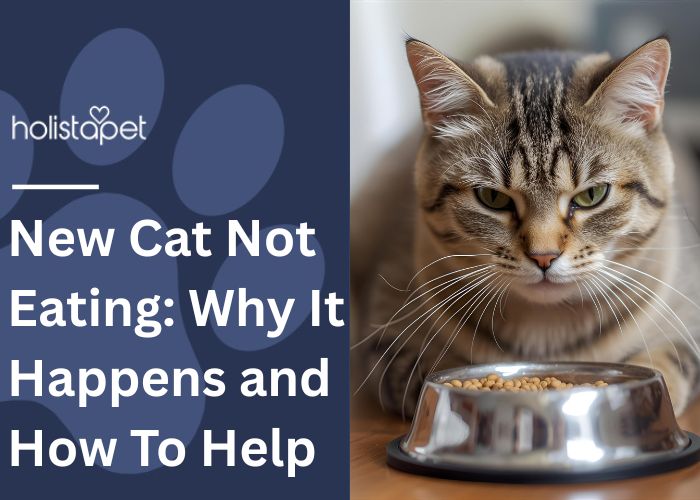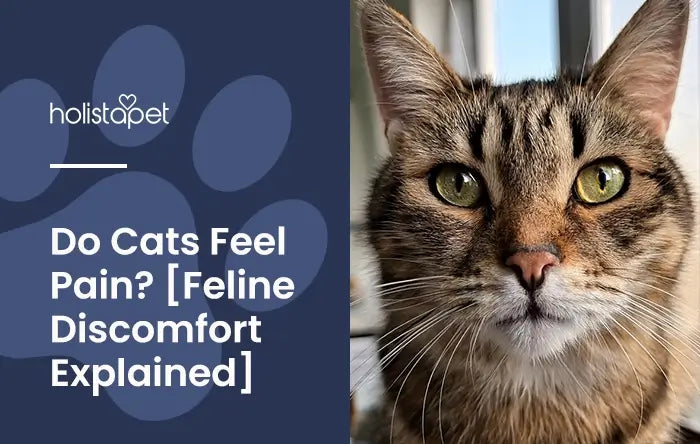Proper senior cat care means slowing life down to your kitty's pace and meeting them where they are. These wise whiskered friends have seen it all, and they deserve a home that matches their mellow mood.
Support your aging feline companion by keeping things simple with soft food, clean water, and plenty of attention. Make their senior years feel like a reward instead of a challenge. With a few small changes and a lot of love, your furry family member can stay comfy and full of personality through every nap and snack.
At What Age Is a Cat Considered a Senior?

Most cats enter their senior stage around seven to ten years old, depending on breed and lifestyle. Indoor pets often age more slowly, while active outdoor felines might reach that stage a bit sooner.
As cats grow older, their needs change, just like ours. Senior cats may sleep longer, play less, and crave quiet spots. Knowing when your kitty is considered a senior helps you shift their care routine early. That way, you can keep them comfortable and full of that familiar feline sass.
The Feline Aging Timeline
A feline is usually considered an adult cat by age two, a mature cat by seven, and officially a senior cat by the time they hit double digits. Once they reach twelve and beyond, they're often referred to as geriatric cats, though many still have plenty of playful spark left. Understanding this timeline helps owners stay ahead of changes in behavior and needs. Seniors might slow down, but with the right care, they can enjoy life well into their golden years.
Common Signs Your Cat Is Entering Their Senior Years
Cats are masters at hiding signs of aging, but small shifts can say a lot. Paying attention early helps you keep your companion comfortable and content through every stage of life. Watch for common indicators like:
- Slower Movement. Older cats tend to hesitate or move with more care.
- Changes in Appetite. Some felines eat less, while others may want more frequent meals.
- Weight Shifts. Unexpected weight gain or loss often signals changing needs.
- Extra Sleep. Senior cats love their naps even more.
- Grooming Changes. Less grooming and dull fur can indicate discomfort or stiffness.
How a Cat's Health Changes With Age
Senior cats often have slower metabolisms, so they burn fewer calories and might gain or lose weight more easily. Energy levels drop, too. Playtime happens in shorter bursts followed by longer naps.
Their appetites and digestion can change as well. Some older cats prefer softer food, while others may eat less overall. You might also notice subtle behavioral changes, such as forgetfulness, slower reactions, and less interest in toys. These adjustments are natural and manageable.
The Importance of Regular Vet Checkups
Regular vet visits become an essential part of pet care once your kitty starts to gray around the whiskers. Annual exams help catch subtle health changes that even the most observant owners might miss. Early detection of health issues through simple tests like blood work and X-rays is incredibly helpful. Veterinarians often recommend more frequent visits for older cats—sometimes every six months—to monitor weight, dental health, and organ function.
Dental Care for Aging Cats
Dental problems can sneak up quietly, leading to soreness and changes in eating habits. Regular oral care helps protect your aging cat's comfort and keeps every mealtime enjoyable.
Brush your pet's teeth if they'll allow it. You can also try dental wipes and vet-approved treats that help reduce buildup. Schedule professional cleanings when needed, and keep an eye out for signs of dental disease like bad breath and drooling.
Nutrition and Hydration for Senior and Geriatric Cats
As cats reach old age, their calorie needs shift and digestion slows. Choosing a balanced senior cat food formula helps maintain energy and support a healthy weight.
Hydration becomes just as important. Keep fresh water bowls in multiple locations, so your cat drinks more often. Some kitties prefer running water, so a fountain can help. Feeding wet food or mixing a little water into meals also keeps the body well-hydrated and comfortable.
Supporting Joint Health and Mobility
Older cats often show subtle signs of stiffness, especially after long naps and cooler days. They might hesitate before climbing furniture and seem slower to chase toys. These quiet clues signal that their joints could use a little extra support.
Help your cat stay limber with gentle play and easy movement. Low scratching posts and soft ramps can make a huge difference. Natural joint-supporting options, such as glucosamine and MSM, can also help keep your senior cat's movements smooth and comfortable.
Creating a Comfortable Home Environment
Start with cozy bedding in quiet areas where your senior cat can rest without interruption. Keep essentials like food and water bowls, litter boxes, and favorite toys on the same level of the house for easy access. Avoid big layout changes that could cause confusion or worry. Soft lighting, gentle background sounds, and warm spots by the window all help minimize stress and keep your older cat feeling safe and secure.
Keeping Your Senior Cat Active and Engaged

Even as cats age, play still matters. Gentle activity helps maintain muscle tone, keeps joints flexible, and gives their mind something fun to focus on. Short play sessions with feather toys, rolling balls, and slow-moving strings can brighten their day without tiring them out.
And don't forget mental stimulation. Try puzzle feeders, hunting feeders, and hiding treats in easy spots around the home. These little challenges spark curiosity and bring joy. A few minutes of enrichment each day keeps your senior cat's spirit sharp.
Natural Support for Senior Cats
Nature offers simple ways to help senior cats feel their best. Many pet owners turn to natural remedies to promote calm, steady energy, good appetite, and overall wellness. These gentle options can provide support without harsh effects.
CBD (cannabidiol) has become a favorite choice among pet parents looking for holistic support. It's known for promoting relaxation, aiding mobility, and encouraging healthy eating habits, to name a few. When added to a balanced routine, natural wellness products such as this can help senior pets enjoy a smooth, peaceful rhythm every day.
The Benefits of CBD for Elderly Cats
CBD works with a cat's endocannabinoid system (ECS), a network that helps balance mood, appetite, and movement. For older felines, that means more comfort and steadier mobility. Many cat owners notice their senior companions seem calmer and more at ease after adding CBD to their daily care routine.
This natural option can also support appetite and reduce agitation in cats showing signs of aging. It doesn't cause a "high" or change their personality. It simply helps them feel more like themselves.
Why Choose HolistaPet's CBD Oils and Treats
HolistaPet makes it easy for pet parents to give their aging cats the care they deserve. Our CBD oils and treats are carefully crafted from American-grown hemp and tested by third-party labs for purity and strength. Every drop and bite delivers broad-spectrum benefits without THC (tetrahydrocannabinol), so kitties can enjoy calm and comfort naturally.
Our Cat CBD Collection includes: Original, Salmon, and Chicken-Flavored CBD Oils, plus tasty CBD Cat Treats and Calming Chews. Each product is free from fillers and preservatives, 100% plant-based, and cruelty-free. With trusted reviews and detailed dosing guides, HolistaPet gives pet parents peace of mind and cats the support they need.
Other Natural Wellness Options
Senior cats can also benefit from a few extra wellness boosts that support their comfort and vitality. These gentle additions work alongside a balanced diet and loving care:
- Joint Support: Glucosamine, Chondroitin, and MSM. These nutrients help maintain flexibility and ease stiffness.
- Probiotics for Digestion and Immune Health. A healthy gut supports steady energy and smooth digestion.
- Antioxidants for Brain and Skin Support. They help protect cells, promote bright eyes, and keep the coat soft and glossy.
Safe and Consistent CBD Use for Senior Cats
Start with a low dose and adjust slowly until you find what feels right for your cat's size and temperament. Giving it at the same time each day helps build trust and routine. Regular use also helps the body maintain balance and steady comfort over time.
Combine CBD with a well-rounded care routine that includes balanced meals, fresh water, and regular vet checkups. With patience and care, CBD can blend naturally into your senior kitty's daily rhythm for lasting wellness.
Warning Signs To Watch for in Senior Cats
Aging cats often hide discomfort, so small changes can reveal a lot about their well-being. Quick attention to these signs helps your pet stay comfortable and happy through their senior years:
- Weight Loss or Changes in Appetite. Shifts in eating habits may signal an underlying issue.
- Increased Thirst or Urination. Drinking or using the litter box more often could indicate changes in organ function.
- Reduced Grooming or Behavioral Changes. A dull coat or withdrawn behavior might mean your cat feels unwell or uncomfortable.
FAQs About Senior Cat Care
Caring for an older feline brings new questions. Here's what cat owners often ask about supporting their senior companions with comfort, love, and natural wellness.
What age is considered "senior" for cats?
Most cats reach their senior years between seven and ten years old. Breed and environment both influence just how fast they age. Indoor pets usually stay youthful longer, while outdoor felines may show signs of aging sooner. Around this time, you might notice slower movement and longer naps.
How can I help my senior cat stay active?
Encourage short play sessions with toys that move slowly, like feather wands and rolling balls. Place scratching posts and small climbing shelves at easy-to-reach heights. You can also use puzzle feeders and treat games to spark curiosity and movement. A few minutes of light exercise every day keeps joints flexible and the mind sharp.
Is CBD safe for older cats?
CBD can be a safe, natural option for aging cats when used responsibly. Always choose products made for pets, like HolistaPet's broad-spectrum oils and treats. These contain no THC and are rigorously tested for purity, making them gentle enough for daily use. With consistent dosing, it can help improve comfort and overall quality of life.
How often should my senior cat see the vet?
Older cats benefit from more frequent vet visits than younger ones. Most veterinarians recommend checkups every six months to track weight, organ function, and dental health. These visits often include blood work or X-rays to detect subtle issues early. Regular exams help prevent small problems from turning into major concerns. Staying proactive keeps your cat’s senior years balanced, happy, and full of comfort.
Final Thoughts on Senior Cat Wellness
Caring for a senior cat is about celebrating their quiet wisdom and gentle routines. A little patience and a few thoughtful changes can greatly benefit their comfort and happiness. Keep their food and water bowls easy to reach, schedule regular vet visits, and fill their days with calm affection.
HolistaPet's CBD oils and treats for cats can add natural support to your kitty's golden years, helping them stay mobile and content. Combined with steady care and a loving home, these small acts of kindness let your senior companion live their best life.


 CBD Oil for Cats - Fast Acting
CBD Oil for Cats - Fast Acting
 CBD Cat Treats - Easy Dose
CBD Cat Treats - Easy Dose
 CBD Calming Chews for Cats - Highly Rated
CBD Calming Chews for Cats - Highly Rated
 CBG Oil for Dogs and Cats - Loved by Thousands
CBG Oil for Dogs and Cats - Loved by Thousands





Leave a comment
All comments are moderated before being published.
This site is protected by hCaptcha and the hCaptcha Privacy Policy and Terms of Service apply.